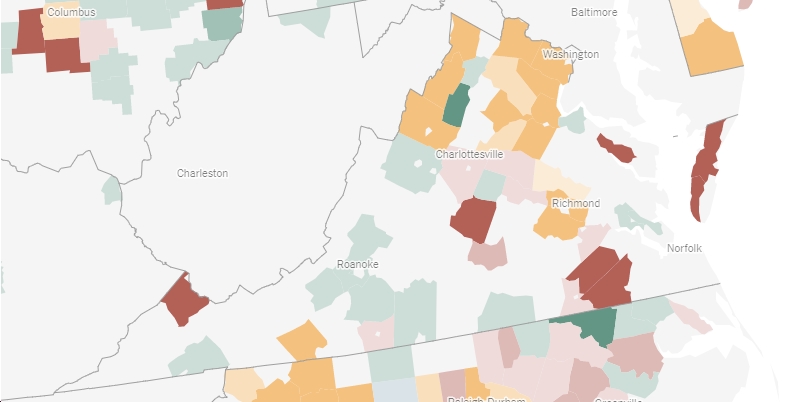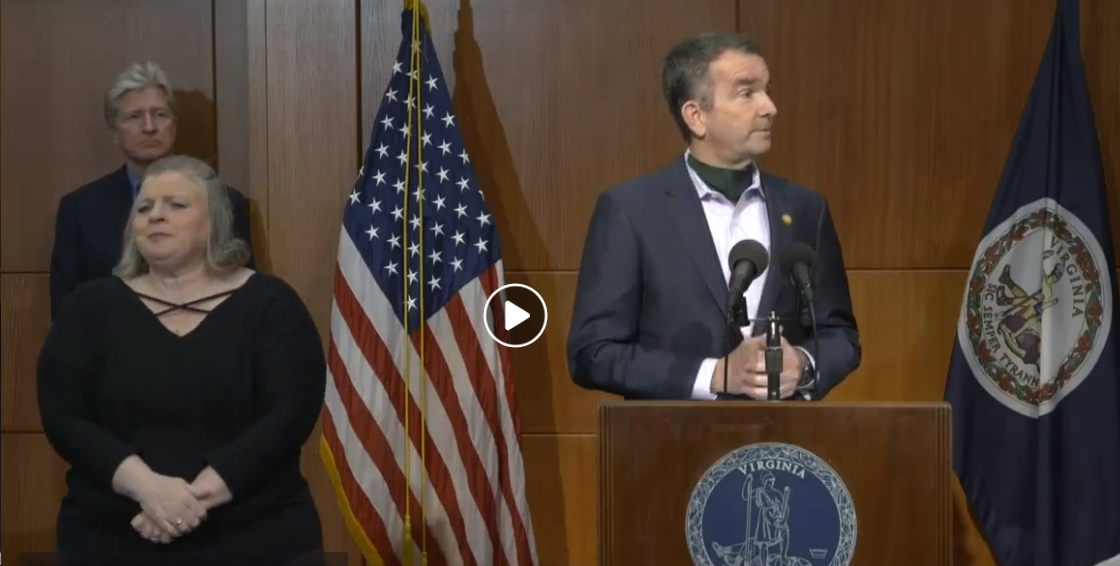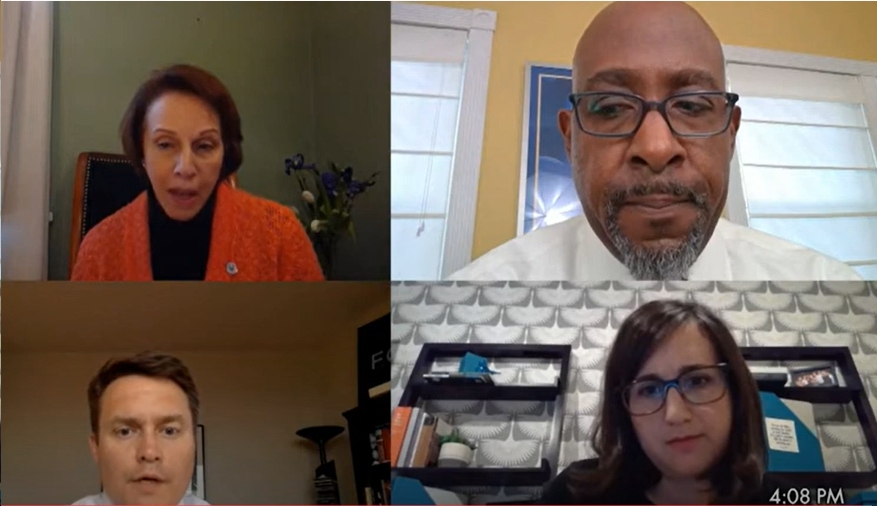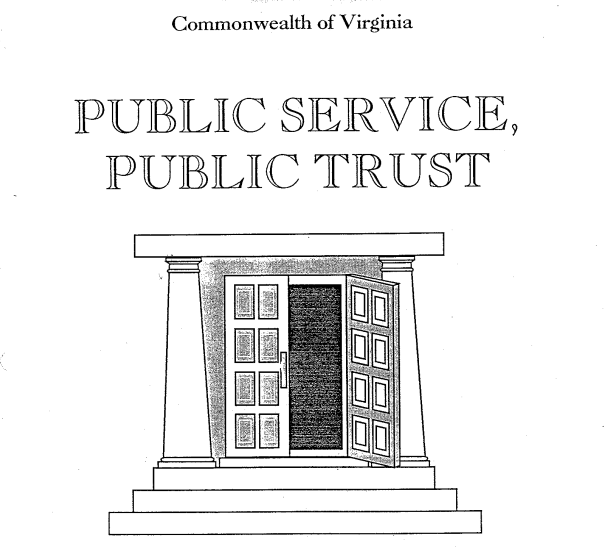Thanks as always to Dr. Mike Silverman, Chair of the Department of Emergency medicine at Virginia Hospital Center, for these helpful updates!
Friday Night Update from the ER in Arlington, VA
For the second week in a row, we saw a reduced number of patients we diagnosed as having Covid in the emergency department. The actual number is about half of our peak weeks in September. We have also had 2 weeks in a row of our lowest percent positivity rate for our symptomatic and asymptomatic patients since mid-summer. Despite this improvement in the emergency department, some of the patients that were seeing are critically ill. The majority are unvaccinated, some of whom just have not found the time to get vaccinated yet. We also do see some breakthrough cases. There are an increased number of cases in nursing homes throughout the area. Many of our breakthrough cases are in elderly patients. The good news is some of these elderly patients are able to be discharged home from the ER, something that was very uncommon in the pre-vaccine days. We had a reduction in the number of our patients who required our “COVID isolation” procedure and a reduction in the number of these patients who required admission. Although things appear better in the ER, our hospital census is about the same as it’s been the last few weeks. Hospitals are still packed locally and across the country.
As someone who has lectured and written a fair amount on leadership, I have long been a fan of Colin Powell. It’s very sad to me that he died of Covid despite being vaccinated. But he was certainly a high-risk kind of patient–elderly and immunosuppressed with a history of cancer. People are still dying of COVID. About 1500 a day. I continue to hear stories of young people who are critically ill or dying of COVID, as well.
There a couple of big news items this week. On Wednesday the FDA approved booster shot for the tens and millions of people who have previously received the 2 dose Moderna vaccine, and upwards of 15 million people who receive the 1 shot Johnson & Johnson vaccine. This very quickly went through the CDC advisory panel and was formally approved by the CDC director late yesterday. This will improve coverage for those people who are at higher risk, estimated to be about 100 million Americans. Probably as important, the FDA and CDC are also going to allow a “mix and match” strategy which will allow for easier logistics of getting booster shots. People who previously received Moderna will not be limited to certain pharmacies were Moderna is being given. The same goes for J&J. We discussed the research on this last week and it’s great when the science also supports a process that makes it easier on the individual to get their booster shot. And I am relatively impressed with how quickly decision making went through week.
People are definitely asking what booster should you get and does it matter. This comes down to a risk/benefit discussion based on age and risk factors. Moderna has generally performed slightly better than Pfizer and both are more effective than J&J. Getting a Moderna booster if you got Pfizer or J&J will likely give you a little better coverage than if you get a Pfizer booster. If you got Moderna, both Pfizer and Moderna boosters provide similar benefit. The Pfizer booster adds a lot but not quite as much as Moderna, but personally, I wouldn’t spend a lot of time tracking down a specific brand for my third dose. The Moderna booster will also be a half dose. The mRNA vaccines (Pfizer and Moderna) have been associated with very rare cases of myocarditis, and males <30 are at higher risk than females. (Again, myocarditis is a very rare complication). J&J has been associated with very unusual blood clots, perhaps higher in females aged 30-49. Again, depending on your age and risk factors, you may have a preference for higher efficacy versus lower complication rate. I got my Pfizer booster and don’t have FOMO because I didn’t get Moderna. My wife got Moderna originally. If/when she gets a booster, I don’t think she’ll worry about whether it’s Pfizer or Moderna, as long as it’s mRNA. If you got J&J, I’d probably look to get an mRNA booster, particularly if you’re female between ages 30-49 to reduce the very rare chance of a blood clot. And although boosters are targeted at this point for 65+, high risk patients >18, and occupational risk exposure, there’s already discussion about making them available to everyone over 40.
I think the age will continue to drop—Pfizer announced data from a phase 3 trial looking at 10,000 people 16 and up. There was a 95% efficacy rate for those who received a booster 6 months after their initial 2 dose series compared to those who weren’t boosted. There were not a lot of cases overall but 5 in the booster group and 109 in the non-boosted group. Although I’ve told my kids I think it’s inevitable that they’ll get COVID and reassured them that they shouldn’t get too sick because they’re vaccinated, there’s many reasons I don’t want them to get COVID at all, so I’m following this closely.
Although boosters are great for keeping us healthy on an individual level, as a country, we’ll make more progress by getting the unvaccinated vaccinated.
Lots of people are asking whether we’ll need a booster every 6 months. I think the short answer is we don’t know yet. Keep in mind, that we get flu shots every year so is every 6 months that much worse? I don’t know that either. Let’s look at the pediatric vaccine series. The attached photo is my son’s actual vaccine records. Look at the number of DTAP shots he got during his first 2 years of life (four) and then a booster 3 years later. DTAP you know for tetanus but the D for diphtheria and P for pertussis are also really important to protect kids from. His Polio vaccine also had 3 doses in his first year of life. I think we need a little more time to see how our own immunity performs over time. Maybe a second booster will be necessary, but I’m not sure we know yet.
This was a good week for news on vaccines and kids. The CDC published data this week on pediatric hospitalizations in their MMWR. Researchers are trying to understand and document vaccine effectiveness of the two dose Pfizer vaccine against hospitalization among 12-18-year-olds. Researchers looked at 19 pediatric hospitals in 16 different states from June through September (Delta peak) and found that the Pfizer vaccine was 93% effective against hospitalization in this age group. Almost three-quarters of the Covid patients in the study “had at least one underlying health condition, including obesity, diabetes, asthma or respiratory disorders, putting them at higher risk of severe illness.” The data “show that among the 179 patients who were hospitalized, 97% were unvaccinated.”. Of the 16% of patients who required life support, none were vaccinated.” My kids are vaccinated. I hope yours are, too.
Also, Pfizer released data today showing that the vaccine is 91% effective in preventing symptomatic COVID in the 5-11 year old age group. This study looked at 2268 kids during the peak of Delta last summer. Vaccine approval is expected for the 5-11-year-old age group in the near future, opening the door to 25 million kids to get their vaccine and the government is preparing a massive role out of pediatric doses (in special orange capped vials), syringes, and needles to the 25,000 pediatrician and primary care offices who signed up to give shots. Side note—Moderna is also studying it’s COVID vaccine for elementary school age kids, and both Pfizer and Moderna continue to research vaccines in kids as young as 6 months, with results expected later this year.
The American Society for Reproductive Medicine Scientific Congress and Expo took place this week (in Baltimore of all places). There were several studies presented that looked at the implication of the vaccine on fertility. No study supported that the vaccine impaired fertility. There were two studies comparing vaccinated and unvaccinated couples going through IVF for pregnancy rates and pregnancy loss. In one study, about 64% of each group (vax and unvax) achieved pregnancy. Clinical pregnancy loss rate was 13.7% vs 13.1% for vax and unvax participants, respectively. This was not a statistically significant difference. The results of a second study were similar. A third study looked at sperm quality. This study looked at 45 men who gave sperm samples prior to vaccination and then again 72 days after the second dose (testicles constantly make sperm and the full process takes about 64 days, which is why you shouldn’t use hot tubs if you think you’re going to try to get someone pregnant in the next couple of months). Although there was some variability, there was no significant drop in sperm concentration and motility among this population after vaccination. Of the 8 men (about 20% of the initial population) who had low sperm counts to begin with, none had any further negative changes. Hopefully, each one of these studies, with more to come, will reduce the vaccine hesitancy for people who fear fertility issues.
Science matters. Get vaccinated. Wear a mask. We’re not quite there.
Mike

















